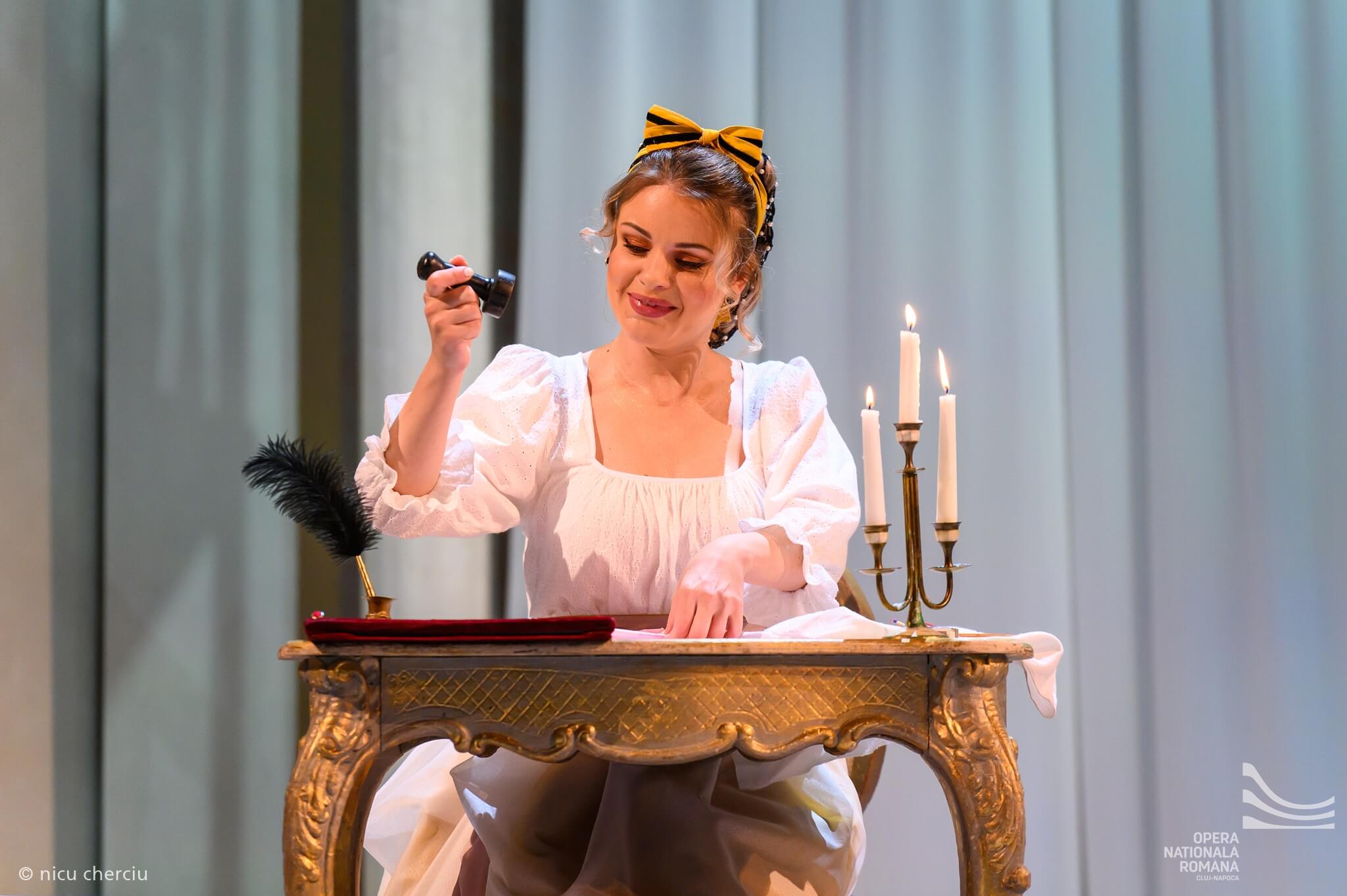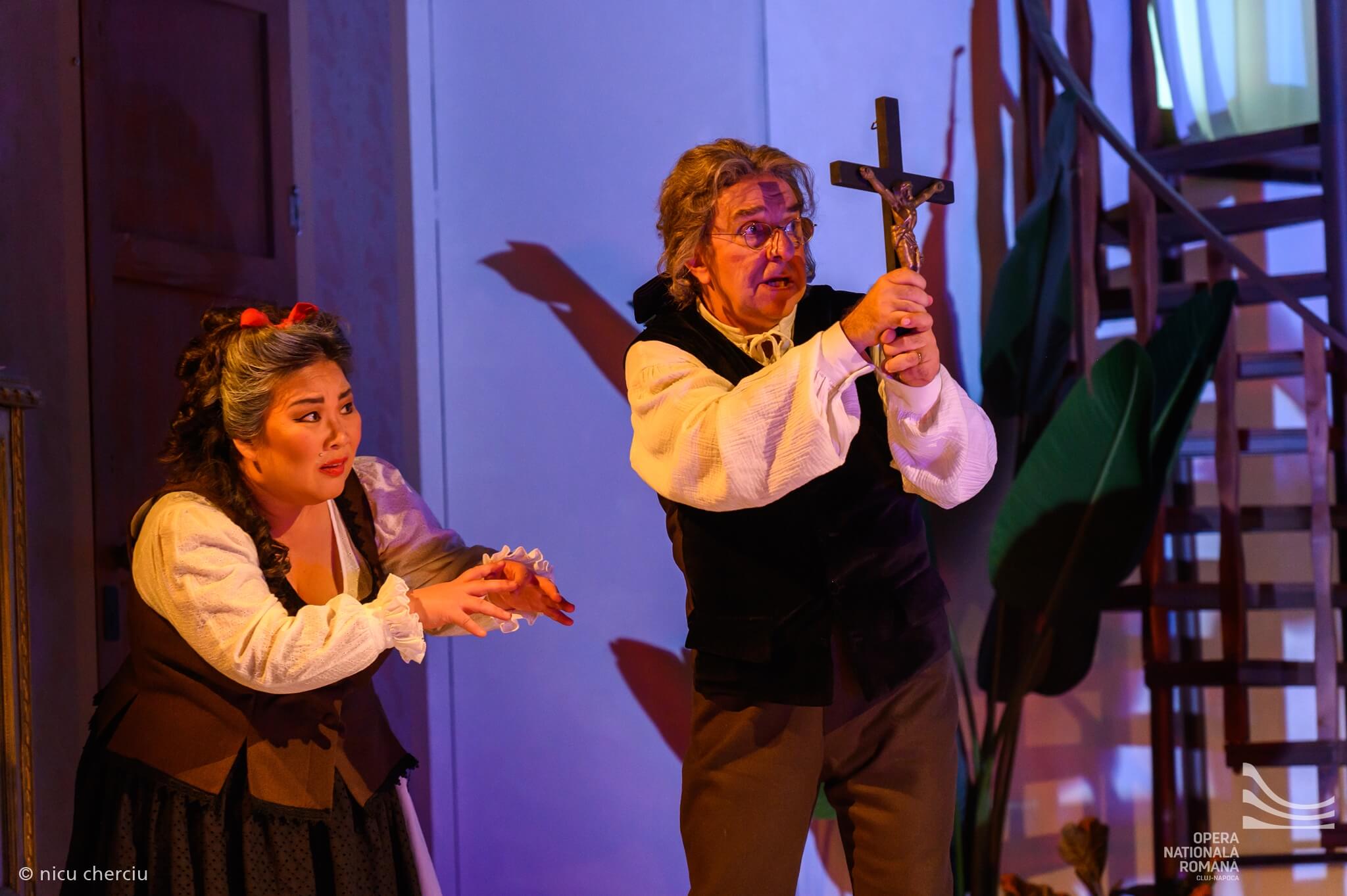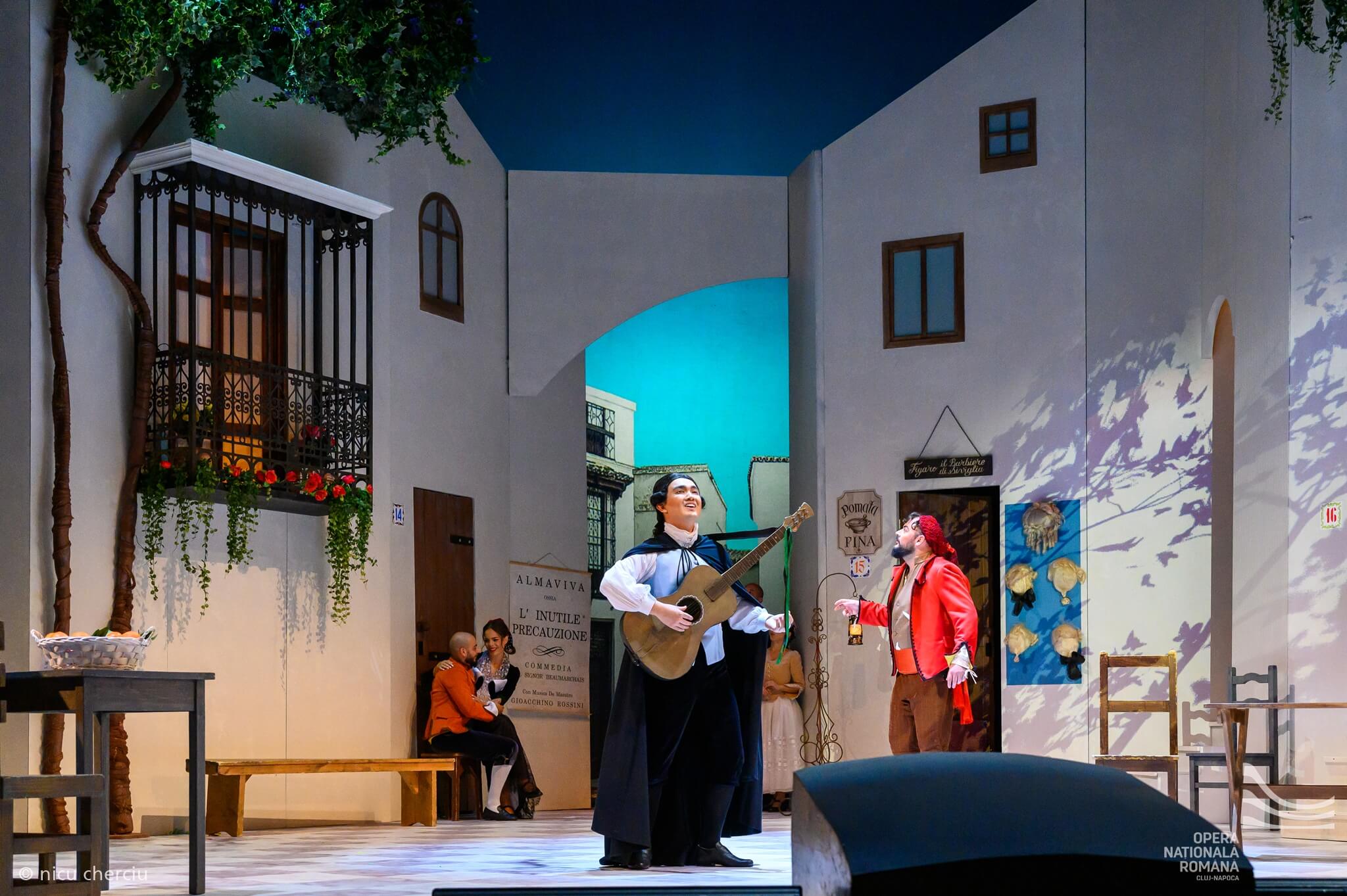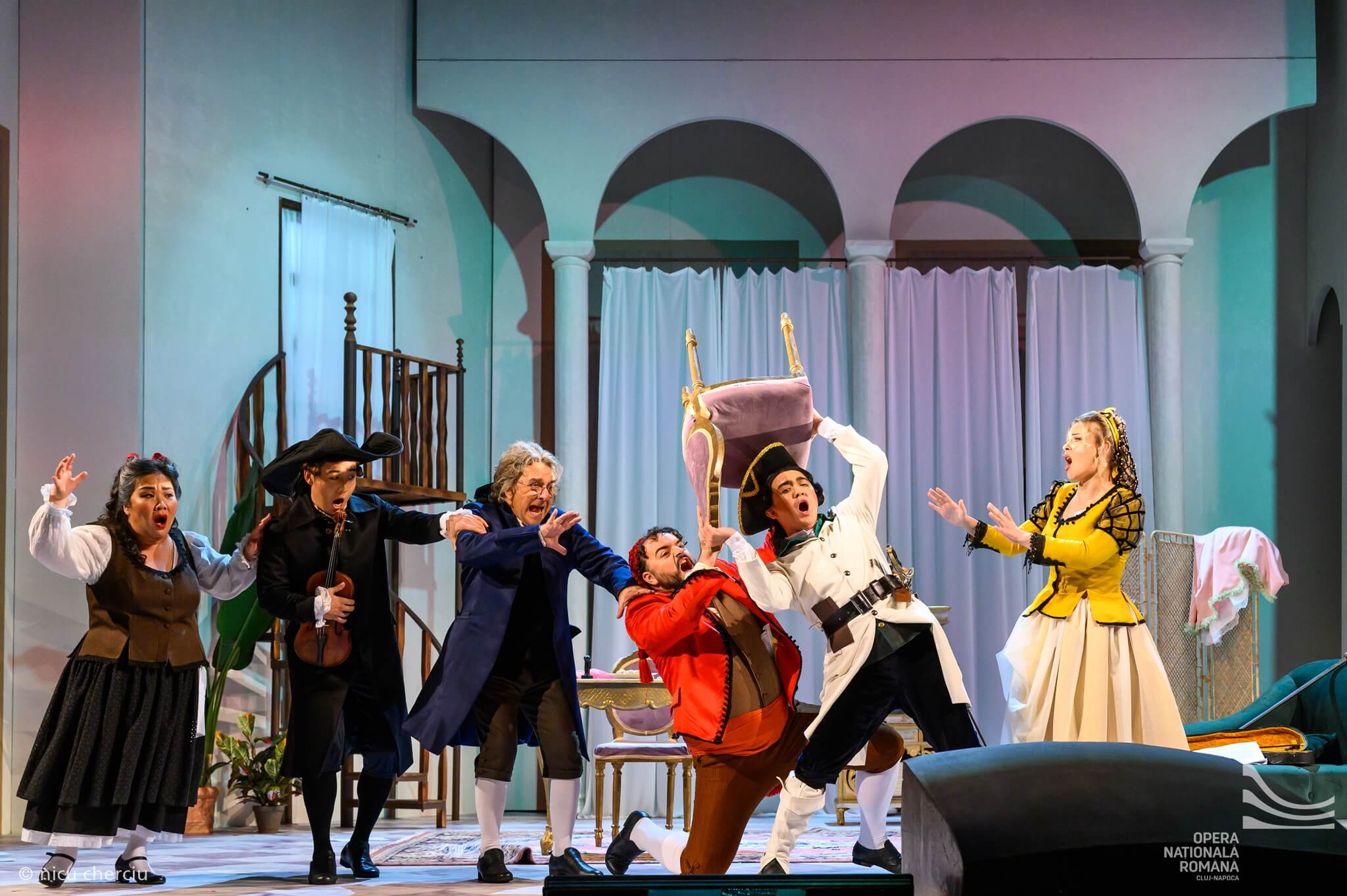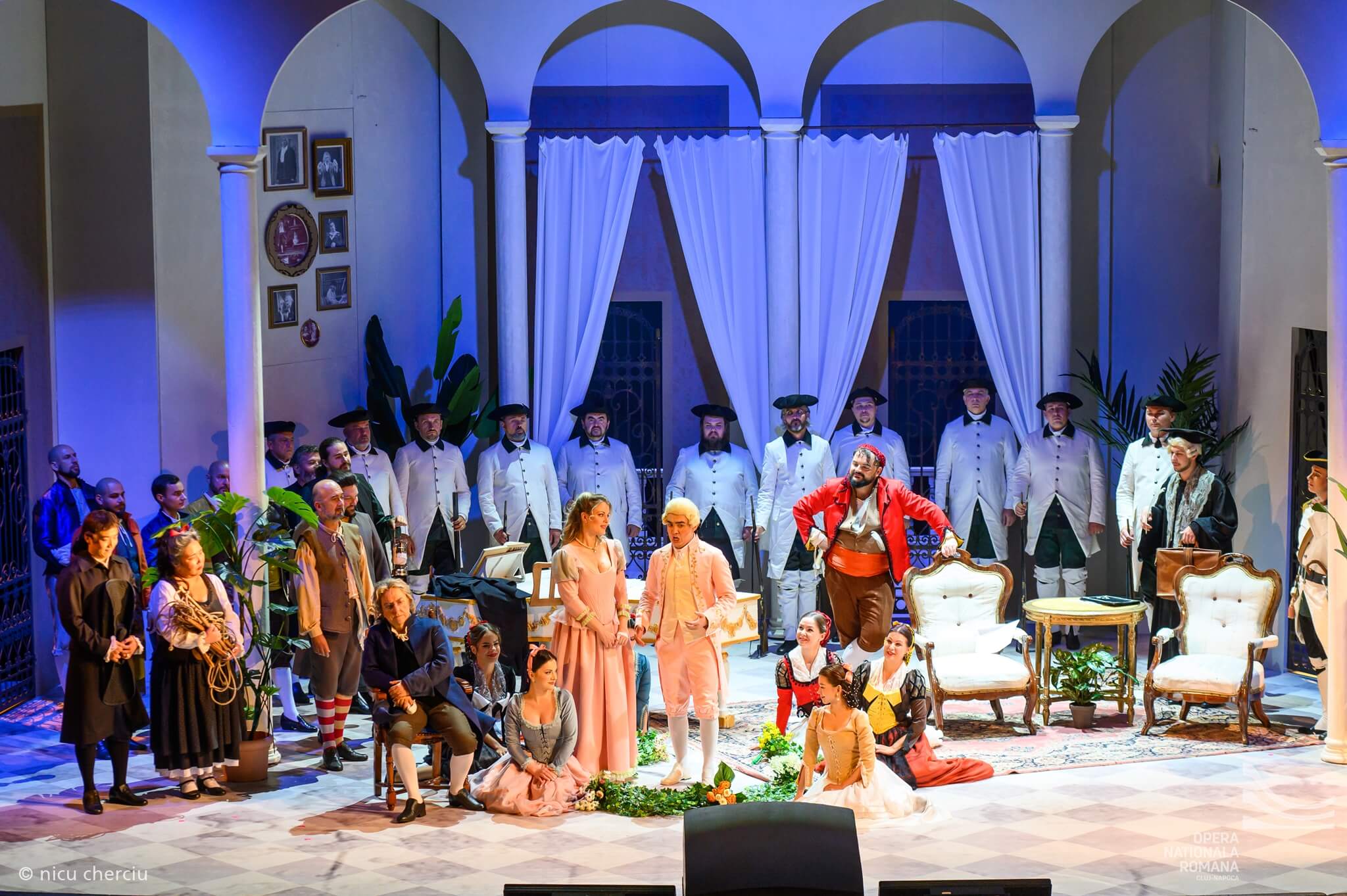
Main Hall
distribution
Figaro, the Barber of Seville: Sebastian Balaj
Rosina, Bartolo's Ward: Marina Dobrescu (guest)
Count Almaviva: Anle Gou (guest)
Dr. Bartolo, Doctor of Medicine: Zoltan Molnar (debut)
Don Basilio, Music Teacher: Corneliu Huțanu
Berta, Maid: Oana Trîmbițaș
Fiorello, Almaviva's Servant: Ionuț Lupu
Officer: Florin Sâmpelean
Ambroggio: Călin Nițulescu
Artistic Direction: Mihaela Sandu
Scenography: Anca Pintilie
Lighting Design: Liviu Popa
Stage Movement: Anca Opriș Popdan
Choir Conductor: Corneliu Felecan
Backstage Director: Iulian Dumitraș
Assistant Director: Alexandra Ciurbe
Prompters: Monica Denițiu, Liana Oltean
Musical Preparation: Lucian Dușa, Nagy Gergő, Adelina Sabău
The Orchestra and the Men's Chorus of the Romanian National Opera in Cluj-Napoca
description
show category: opera
Opera in three acts on a libretto by Cesare Sterbini, based on Pierre Beaumarchais’ play Le Barbier de Séville
Recommended Age: 7+
One of the most comical, animated, and long-awaited operas ever written, Gioachino Rossini’s The Barber of Seville always cheers our performance hall and is met, at each presentation, with roaring applause by the public of Cluj.
The performance brings once again on stage Figaro, the humorous, courageous, and romantic Spanish barber, who gives a charming touch to the love story between the restless Count Almaviva and beautiful Rosina. Gioachino Rossini’s work had had huge success ever since its 1816 absolute premiere when it opened with the initial, otherwise suggestive title of Almaviva (The Useless Precaution). The funny barber is even now topping the bills of opera theatres all over the world.
In the enchanting and colorful 18th century Seville, Figaro is the barber loved by the entire city, who helps fulfill Rosina and Count Almaviva’s great love. However, there is a huge challenge, because Rosina is also chased by her old tutor, Bartolo, who has the advantage of being helped by Basilio, the young woman’s music teacher.
The opera’s atmosphere of love and humor is given by the multiple tricks that Count Almaviva and Figaro resort to to approach the beautiful lover and declare her love. The final scene, where Figaro and the Count enter Rosina’s house at midnight, climbing on her balcony-propped stairs, provides a more passionate air to the three-act bouffe masterpiece. Rosina’s heart experiences the utmost joy when Almaviva bends on his knees to offer his love, wealth, and name. The ardent declaration is also joined by teacher Basilio, bribed by Bartolo’s adversaries, who becomes witness to the lovers’ marriage. The old and glum Barolo arrives too late to stop their union and is only consoled by the fact that he gets to keep Rosina’s dowry, which Almaviva has given up.
The performance has two breaks and ends around 10.00 p.m.
The performance is in Italian with Romanian supertitles.

